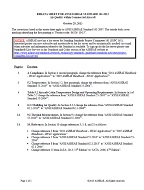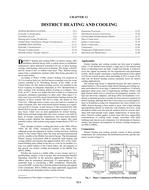A refrigeration system was used in cooling and freezing applications controlled by a smart control strategy. This was done using an inverter driven scroll compressor, an inverter driven evaporator fan motors, an inverter driven condenser water pump and an electronic expansion valve. The smart control strategy depends on different controllers; it controls the compressor by artificial neural networks (ANN), the evaporator fan motors by proportional controller, the condenser water pump and the electronic expansion valve by proportional integral differential (PID) controller. Controlling the evaporator fan motors speed was done to maintain a constant supply air temperature, while controlling the condenser water pump speed was done to maintain a constant condensing pressure. The compressor speed was controlled using artificial neural networks (ANN) based on the analyzed data from a preceding experimental results. It was found that operating the refrigeration system using smart control strategy to control the motors speeds improved the performance of the refrigeration system compared to traditional on/off control strategy. Using smart control strategy showed a reduction in the starting operation time compared to the traditional on/off control strategy by 55% in order to achieve the desired room temperature set value. The reduction in operation time to achieve the desired room temperature set value results in total energy saving 60% by using smart control strategy compared to traditional on/off control strategy. The energy saving during system operation in the starting operation period is found to be 11.3%, while the energy saving during the steady state operation time is 11%.
Citation: International Conference on Efficient Building Design, Materials and HVAC Equipment Technologies; October 2-3, 2014; Beirut, Lebanon
Product Details
- Published:
- 2014
- Number of Pages:
- 8
- File Size:
- 1 file , 1.7 MB
- Product Code(s):
- D-ICEB14-20


